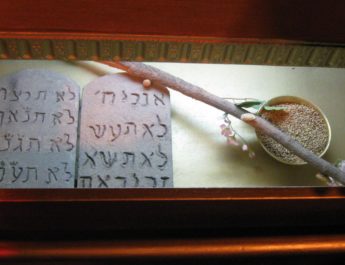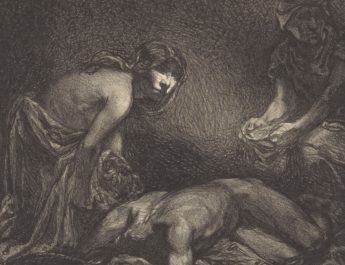Psalm 134
A “Song” = shir. From shir (to sing; one who is singing or leading others in song). This is song or singer.
B “Ascents” = ma’alah. From ma’aleh (ascent, platform, slope, stairs, cliff, elevation, a rise; figuratively, a priority); from alah (to go up, ascend, be high, be a priority; to arise in a literal or figurative sense). This is something that arises, elevation, a journey to a higher pane. This can be used figuratively to mean having a though or being of a superior status. It is often used in a specific sense for something the mounts to a climax. This is step, stair, or high degree.
1 Come,C blessD the Lord,E allF you servantsG of the Lord,
C “come” = hinneh. From hen (lo! Behold! If, though; an expression of surprise). This is to draw attention, show suddenness or surprise, or to emphasize the importance of the coming statement. See! Lo! Behold!
D “bless” = barak. This is to kneel, to bless. It is blessing God as part of worship and adoration or blessing humans to help them. It can be used as a euphemism to say curse God.
E “Lord” = YHVH. From havah (to be, become) or hayah (to come to pass, become, be). This is the name of the God of Israel, the self-existent and eternal one, the tetragrammaton. This pronunciation has been lost to time so “Lord” is generally used in its place.
F “all” = kol. From kalal (to complete). This is all or every.
G “servants” = ebed. From abad (to work, serve, compel; any kind of work; used causatively, can mean to enslave or keep in bondage). This is a servant, slave, or bondservant.
who standH by nightI in the houseJ of the Lord!
2 Lift upK your handsL to the holy place,M
and bless the Lord.
H “stand” = amad. This is to stand up in a literal or figurative sense. So it can be establish, continue, endure, take a stand, act, be a servant, stand still, remain, stand against an enemy.
I “night” = layil. Properly, this refers to light twisting away. It is used for night or midnight. Figuratively, this can mean adversity.
J “house” = bayit. Probably from banah (to build, make, set up, obtain children; to build literally or figuratively). This is house, court, family, palace, temple.
K “lift up” = nasa. This is to lift in a broad sense, literally and figuratively. So it could be to carry, take, or arise. It could also be bring forth, advance, accept.
L “hands” = yad. This is hand, ability, power. Hand in a literal sense, but also what one can do or the means by which one does it.
M “holy place” = qodesh. This is set apart and so sacred. God is different from us and so God is holy/set apart. Things we dedicate to God’s service are set apart for God and so they, too, are holy, etc.
3 May the Lord, makerN of heavenO and earth,P
bless you from Zion.Q
N “maker” = asah. This is to make, do, act, appoint, become in many senses.
O “heaven” = shamayim. Root may mean being lofty. This is sky, the air, or heaven. It is in a dual noun form so this might refer to the part of the sky where the clouds move on the one hand and the part beyond that where the sun, moon, and stars are on the other hand.
P “earth” = erets. Root may mean to be firm. This is earth, ground, field land, or country.
Q “Zion” = Tsiyyon. Related to tsyiyyun (signpost, monument); from tsavah (to charge someone, to command, order); from the same as tsiyyah (dryness drought); from a root meaning parched as desert, dry land. Zion can refer to a mountain in Jerusalem as well as another name for Jerusalem itself or the people.
Image credit: “Spring Nights” by Paean Ng, 2016.




